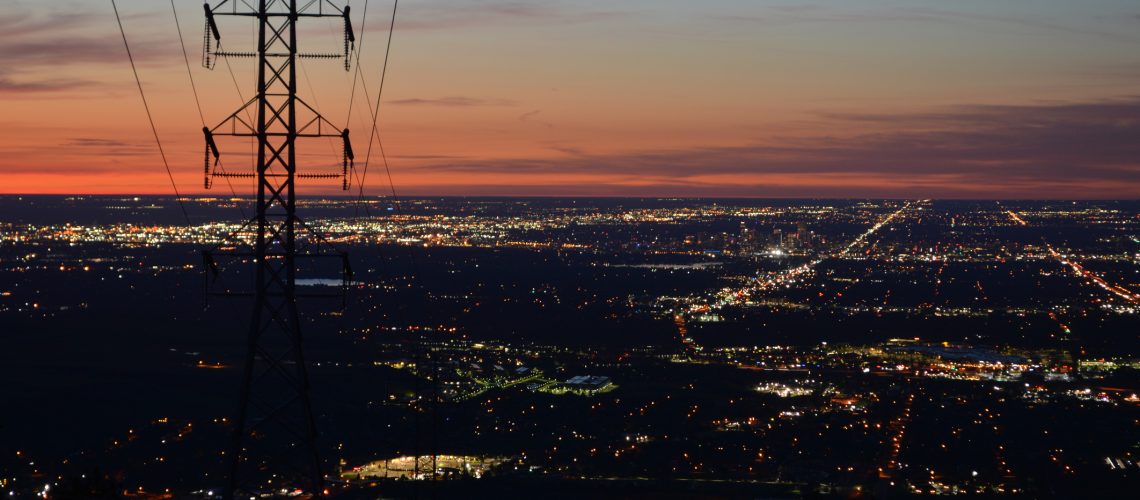Power outages often happen without warning and can last a few minutes to several days. Knowing how to prepare for power outages can help minimize the impact on your daily life. Read on to learn more about the common causes of power outages, how to be ready for them, and how to navigate them when they happen.
What Causes Power Outages To Happen?
Power outages can happen for several reasons, from natural to man-made concerns. The most common causes of power outages are:
Severe Weather
Severe weather can lead to power outages for a few reasons. It may lead to natural disasters, fallen trees taking out power lines, or even disturbing natural wildlife that then goes on to damage the lines. Nearly 20% of power outages are caused by adverse weather like snow, ice, wind, or lightning.
Wildlife
Wildlife can cause power outages by chewing through wires or disturbing components when foraging or building homes. Some animals are also attracted to the warmth generated by electricity, making the risk of damage caused by wildlife more likely.
Human Damage
Power outages can be caused by accidental human damage, like car accidents or construction work taking out the lines. It might also be caused on purpose by cyberattacks in particular neighborhoods or cities or by public damage to equipment.
Mechanical Failure Or Upgrades
Equipment failure to the power lines can directly lead to power outages. On occasion, there may also be planned upgrades to the power lines to avoid issues during increased demand, or to upgrade or repair damage, which might lead to power outages for a set period of time,
Increased Demand
A sudden increased demand for power can lead to power outages. This might happen if an unprecedented amount of users require power. For example, if the temperature suddenly dropped and many people required heating quite quickly, but the power line cannot support the volume, there might be a power outage.
How Can I Navigate A Power Outage?
How you navigate a power outage depends on the type of fault that has happened. A brownout refers to reducing the power grid’s capacity on purpose to avoid a complete blackout. Blackouts are unplanned complete power outages caused by severe weather, wildlife, accidents or mechanical failure. Rolling blackouts refer to planned total power outages. This is often when an energy provider cannot meet the demand for power, and shutting down the system avoids longer-term system failure.
Planned power outages can give you more time to prepare, but you should be incredibly careful if you are driving or outside the home for unexpected ones. Keep people and animals away from fallen power lines, and be incredibly careful when driving. Only call 911 if people are injured or at risk, and instead, call your energy provider if possible.
In general, you can stay prepared for power outages by:
- Having charged flashlights, or flashlights with fresh batteries or spare ones easily available in your home
- Keeping a battery-powered radio or use your car radio for updates on weather or issues causing power outages
- Leaving first aid kids and an additional water supply accessible in case of accidents or extended power outages
What’s The Best Way To Prepare For A Power Outage?
Installing a generator is the best way to stay prepared for a power outage. A generator is designed to keep power running through the home as a backup for emergencies like power outages. If you live where brownouts or rolling blackouts are common, a generator can help put your mind at rest and help keep you and your family safe during a power outage.
Final Thoughts
Power outages can impact one house or an entire city. They can be caused by the weather, animals, or human damage or implemented deliberately to avoid system failure at times of increased demand. If you have a power outage and aren’t at home, be careful of power lines and drive carefully.
It can be hard to anticipate when you might need to navigate a power outage. Keeping powered flashlights, battery-operated radios, water, and first aid kits in easy locations helps you handle a power outage. Ultimately, though, installing a generator is the best way to be prepared. Generators can give you peace of mind with a backup electricity supply during power outages.
Want to find out more? Contact Generator Supercenter of Nashville today to find the best equipment to help you navigate a power outage.








